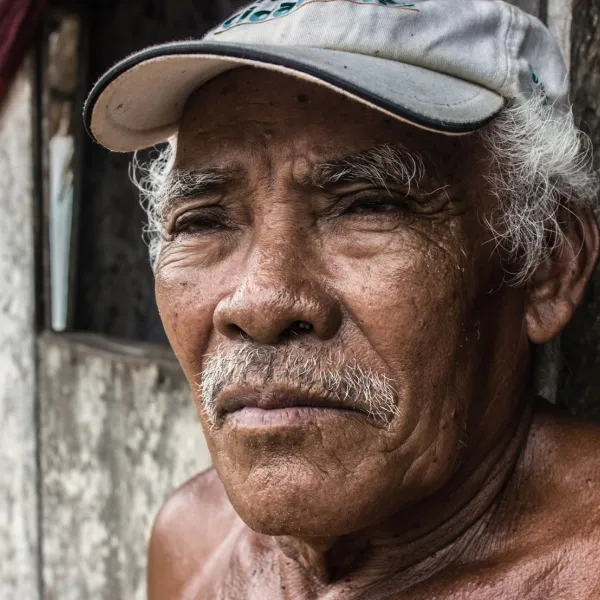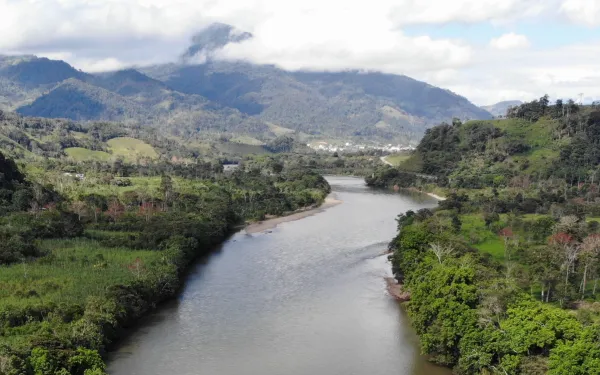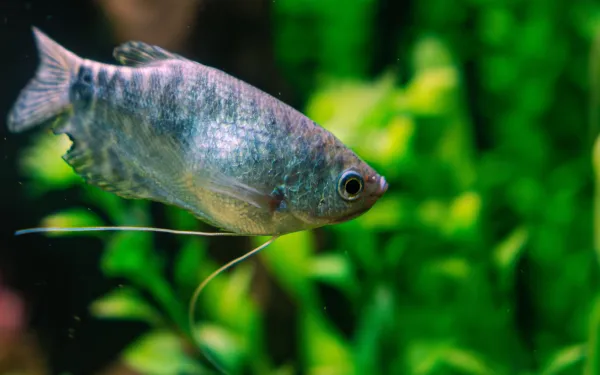
Project
Photo: Maíra Irigaray / Amazon WatchHolding Brazil accountable for the Belo Monte Dam
When fully operational, Belo Monte will be the third-largest dam in the world, constructed in one of the most important ecosystems on the planet: the Amazon rainforest. It sits on the Xingu River in Pará, a state in northern Brazil. The reservoir will cover 500 square kilometers of forest and farmland—an area the size of Chicago.
For the people of the Xingu, construction of Belo Monte has meant loss of access to water, food, housing, work and transportation. At least 20,000 people have been displaced.
The government and construction consortium began to construct the dam without first consulting the people of the region, many of whom are indigenous. They flouted international human rights law, which requires the free, prior and informed consent of affected indigenous communities. Brazil also failed to comply with precautionary measures issued by the Inter-American Human Rights Commission, which were intended to protect the life, health, and integrity of local communities.
Though Belo Monte began operations in May 2016, it is not yet operating at full capacity. In April 2016, a federal court suspended the dam's operating license because the consortium in charge did not complete basic sanitation works in Altamira, the city nearest to and most affected by the dam.
Partners:

Related projects

Amazon Summit: 6 proposals for preserving the Amazon through regional cooperation
The Amazon is the world's largest tropical forest, a megadiverse ecosystem, and a global climate stabilizer that plays a key role in South America's water cycle. The region is also home to hundreds of indigenous, peasant and local communities. Despite its richness and cultural importance, the Amazon is threatened by colonization and land grabbing, deforestation, fires and extractive activities, among others. Because the Amazon is shared by eight countries – Bolivia, Brazil, Colombia, Ecuador, Guyana, Peru, Suriname and Venezuela – and French Guiana, a French overseas department, its conservation requires a regional effort. The Amazon Cooperation Treaty (ACT), signed in 1978 by the eight Amazonian countries, promotes the sustainable development of the Amazonian territories, with an emphasis on cooperation and scientific research. In 1998, with an amendment to the Treaty, the countries created the Amazon Cooperation Treaty Organization (ACTO) to strengthen and improve the cooperation process. Today, ACTO is the only socio-environmental bloc in Latin America and the most important scenario for establishing solid regional coordination for the conservation of the Amazon biome. However, this intergovernmental organization has not yet reached its potential. On the one hand, it has encountered obstacles in generating funding, and has had to rely on international sources on several occasions. On the other hand, it has not allowed the effective participation of civil society. On August 8 and 9, the city of Belém do Pará in Brazil will host the Amazon Summit 2023, the fourth meeting of the Presidents of the States Parties to the ATT. Given the opportunity that this meeting offers to revitalize the ATT for the benefit of the Amazonian territories, we present below six proposals for the conservation of this ecosystem through regional cooperation. 1. Reform ACTO bodies to allow for public participation There is an urgent need to update the ACT and reinstate ACTO to ensure broad civil society participation, including in the meetings of ACTO's governing bodies and in the drafting of its Strategic Agenda for Amazon Cooperation. The minutes of such meetings should be made public. These and other measures are essential for Amazonian states to fulfill their obligations under the Escazú Agreement, a regional treaty that recognizes the public's right to access information on environmental matters. 2. Promote involvement, dialogue and coordination with Amazonian populations The indigenous, peasant and local communities that inhabit the Amazon have played a fundamental role in its protection. For millennia, their knowledge has enabled its conservation. Therefore, efforts to conserve this ecosystem must begin by recognizing, valuing and protecting these ancestral knowledge systems, promoting their participation in decision-making, and guaranteeing their rights in accordance with international human rights frameworks. 3. Protecting environmental defenders in the Amazon Four of the Amazonian countries – Brazil, Colombia, Ecuador and Peru – are among the countries with the highest risks for environmental and territorial defenders, especially indigenous and peasant women defenders. Despite this, ACTO currently has no strategy to address this serious situation. The organization must guarantee environmental defenders a safe and conducive environment for their work, a task that should include a program for the protection of women defenders in the Amazon. 4. Effectively fight the use of mercury in gold mining The use of mercury in small-scale gold mining is devastating to communities and ecosystems in the Amazon. At the regional level, ACTO should adopt a resolution or program to address this issue directly. And at the international level, member states should act as a bloc to push for amendments to the Minamata Convention on Mercury so that the treaty prohibits the marketing of the heavy metal and its use in small-scale gold mining. 5. Promote compliance with international environmental agreements Based on a regional strategy for the recognition of international environmental law to protect the Amazon and its people, ACTO should advise States Parties on compliance with environmental treaties such as the Convention on Biological Diversity. It should also assist States in the inclusion of threatened sites, knowledge systems, traditions and cultural expressions of peasant communities and indigenous peoples on lists of priority international attention and support, such as UNESCO Biosphere Reserves and Intangible Cultural Heritage, and Wetlands of International Importance under the Ramsar Convention on Wetlands. 6. Promote a different vision of development for the Amazon ACTO should promote a vision of development that considers communities and addresses the problems of deforestation, fires and the expansion of the extractive frontier through international integration. It should also articulate regional efforts to stop the expansion of the oil frontier and advocate for the establishment of a moratorium on fossil fuel extraction in the Amazon. In addition, it should promote legal reforms that discourage the expansion of illegal mining and its impacts. Looking to the future The Amazon rainforest and the potential for regional cooperation to conserve it are at a critical juncture. The point of no return for the Amazon, the point at which the rate of deforestation nullifies its capacity to regenerate, is no longer a future scenario. But at the same time, after several years of little action within ACTO, this year's Amazon Summit and the reactivation of the Amazon Parliament in 2022 renew hope for regional cooperation to conserve the Amazon. In the same vein, the presidents of Brazil and Colombia recently announced their goals to reduce illegal deforestation in the Amazon by 2030. Given the current threats to the Amazon and ACTO's mandate to promote regional cooperation, its member states should seize this moment to provide the organization with more regular and permanent funding. This is necessary to implement effective long-term programs and, in particular, the above-mentioned proposals. Civil society should also take full advantage of opportunities for advocacy with ACTO and its bodies, including participation in the Amazon Dialogues that will take place from August 4 to 6 as a prelude to the Summit. Joint regional and transboundary efforts are powerful enough to save a vital ecosystem for the region and the world.
Read more
Mexican environmental authority violates Mexico’s highest court and international obligations when reissuing a permit for a port expansion that threatens the Veracruz Reef System
In a legal brief, AIDA and Earthjustice argue the Secretary of the Environment failed to properly evaluate the environmental impact of the project to the reef, a UNESCO World Heritage Site, as required by Mexico’s highest court. Mexico City, Mexico – Today, AIDA (Interamerican Association for Environmental Defense) and Earthjustice filed a brief with the Fifth District Court of Veracruz to help protect the Veracruz Reef System from the Veracruz port expansion project. When reauthorizing the project, the Secretary of the Environment and Natural Resources (Semarnat) not only failed to comply with a ruling of the Supreme Court of Justice of the Nation, but also ignored Mexico’s international obligations regarding environmental protection and human rights, including the human right to a healthy environment guaranteed in the Mexican Constitution. This was demonstrated by AIDA and Earthjustice in a legal brief (Amicus Curiae or "Friend of the Court") filed before the Fifth District Court of Veracruz. In it they request that the court -- which is in charge of determining whether the Supreme Court’s ruling was complied with or not -- establish contempt and force Semarnat to re-examine the project based on the environmental impact assessment procedure required by the high court. "The authorities must comply with the Supreme Court ruling and protect this internationally-recognized natural treasure of Mexico. The human right to a healthy environment cannot be ignored," said Guillermo Zúñiga, a Veracruz native and Earthjustice attorney. "The reef not only hosts the greatest biodiversity of species in the central region of the Gulf of Mexico, but also helps mitigate the impact of storm surges and hurricanes. The people who grew up here, as I did, and who live here now, know the value of this sanctuary where land and sea harmonize in unity." On February 9, 2022, residents of Veracruz won a victory before the Supreme Court in an amparo action filed to defend the Veracruz Reef System -- the largest reef in the Gulf of Mexico -- and its environmental services against the Veracruz port expansion project. The Supreme Court ordered the revocation of the permits by determining that Semarnat, by approving the project, violated the right to a healthy environment of the people of Veracruz. Despite the ecological, cultural, and economic importance of the Veracruz Reef System, the environmental authority had authorized the port expansion in a fragmented way, dividing the project into 15 permits and diluting its true impact. In addition, it completely excluded from its analysis a non-emerging reef ("La Loma") located in the area of the Veracruz Reef System National Park. In its ruling, the Supreme Court ordered the environmental authority to reevaluate the project in an integral, holistic and complete manner. In addition, it ordered that the new evaluation be made in accordance with the elements that make up the right to a healthy environment, as well as the principles of prevention and precaution, enshrined in international law. It also requested the support of the National Council of Natural Protected Areas and the International Wetlands Committee of the Ramsar Convention to design a protection scheme for the Veracruz Reef System. "Right now, the court has the opportunity to confirm the transformative effect of the Supreme Court's ruling and set a valuable precedent for the real protection, not just on paper, of Veracruz's reefs and the universal right to a healthy environment," said Sandra Moguel, an attorney with AIDA's Ecosystems Program. "Including the international authorities of the Ramsar Convention would mean strengthening the project's environmental impact assessment with technical knowledge and transparency." As demonstrated in the brief, by granting a second permit to the project -- on December 30, 2022 -- Semarnat failed to comply with the Court's ruling and the Mexican State's obligations because: It did not require a new environmental impact study -- mandatory for projects of this size under international law and national legislation -- to analyze the cumulative impacts of all segments of the original project. On the contrary, the environmental authority based its assessment on the original deficient statements. Even so, it left three of the original segments out of its analysis. It failed to submit its new assessment to a public consultation nor did publish new information on the impacts of the project before authorizing it again. In this way, it ignored the rights of the people of Veracruz to public participation and access to information in environmental decision-making. Semarnat has not yet requested the support of the National Council of Natural Protected Areas or the International Wetlands Committee. The participation of this committee is of particular importance due to its experience and technical knowledge in the protection of protected areas and wetlands. The Veracruz Reef System is a Natural Protected Area designated under national legislation, a wetland of international importance under the international Ramsar Convention, and a UNESCO World Heritage Site. AIDA is an international non-profit organization that has been protecting the human right to a healthy environment in the Americas for 25 years. Earthjustice is the premier nonprofit public interest environmental law organization in the United States. We wield the power of law and the strength of partnership to protect people's health, to preserve magnificent places and wildlife, to advance clean energy, and to combat climate change. press contacts Sandra Moguel, AIDA, [email protected] (Spanish and English) Kathryn McGrath, Earthjustice, [email protected] (English) Guillermo Zúñiga, Earthjustice, [email protected] (Spanish)
Read more
A healthy environment: what is this universal right?
The triple crisis facing the world highlights the importance of guaranteeing the right of all people to live in a clean, healthy and sustainable environment.Climate change, biodiversity loss and pollution are among the greatest threats to humanity today, seriously affecting the exercise and enjoyment of human rights. It’s enough to mention just a few examples:Air pollution is one of the main environmental threats to health, causing seven million premature deaths each year.In the last 10 years, extreme weather events have caused 220 million displacements, or about 60,000 per day. These and other impacts disproportionately affect individuals, groups and communities who are already in a situation of vulnerability.For women, for example, environmental degradation means the reinforcement of pre-existing inequalities and situations of discrimination in matters such as access to and tenure of land and natural resources. Children, for their part, suffer more intense impacts due to their less developed physiology and immune systems. And for indigenous and traditional peoples, the defense of their territories and livelihoods in the face of environmental damage represents serious threats, even to their lives.But what is the right to a healthy environment? Components of the right to a healthy environmentThe right to a healthy environment is increasingly included in constitutions, laws and regional justice systems. Although the definitions vary, the essence is the same. The general understanding is that to make it a reality requires two basic types of elements:Substantive elementsClean air.A safe and stable climate.Access to clean water and adequate sanitation.Healthy and sustainably produced food.Non-toxic environments in which to live, work, study and play.Biodiversity and healthy ecosystems.Procedural elementsAccess to information.Public participation in decision-making.Access to justice and effective remedy. The realization of this right also requires international cooperation, solidarity and equity in environmental actions (including the mobilization of resources), as well as the recognition of extraterritorial jurisdiction in damages to human rights caused by environmental degradation. Dimensions and qualitiesThe right to a healthy environment has both a collective and an individual dimension. Under the former, it constitutes a universal interest owed to both present and future generations.The individual dimension implies that violating this right can have direct and indirect repercussions on individuals due to its indivisible and interdependent relationship with other rights, such as the right to health, personal integrity or life, among others.As the Inter-American Court of Human Rights concluded, given that environmental degradation can cause irreparable harm to people, a healthy environment "is a fundamental right for the existence of humanity.”It is also an autonomous right that protects the components of the environment (forests, rivers, seas and others) as legal interests in themselves, even in the absence of certainty or evidence of risk to people.The autonomous nature of this right and its interconnection with other rights entails a series of obligations for the States, which include to:Prevent significant environmental damage; which implies regulating, supervising and overseeing activities that may generate risk or cause damage to the environment.Carry out environmental impact studies, establish contingency plans and mitigate damages.Act in accordance with the precautionary principle in the face of possible serious or irreversible damage to the environment, affecting the rights to life and personal integrity, even in the absence of scientific certainty.Cooperate with other States in good faith for protection against significant environmental damage.Guarantee access to information on possible environmental impacts.Guarantee the right to public participation in scenarios that may affect the environment and guarantee access to justice.Given the urgent need for new and better ways to protect the environment, the United Nations’ recognition of a healthy environment as a universal human right on July 28, 2022 marked a historic step forward in the long and complex process of guaranteeing this right in practice, which has been part of AIDA's history since its inception.At AIDA, we’ve long worked to highlight the link between a healthy environment and other human rights. And we’re committed to fulfilling our mission: to strengthen the capacity of the people in Latin America to guarantee their individual and collective right to a healthy environment.
Read more